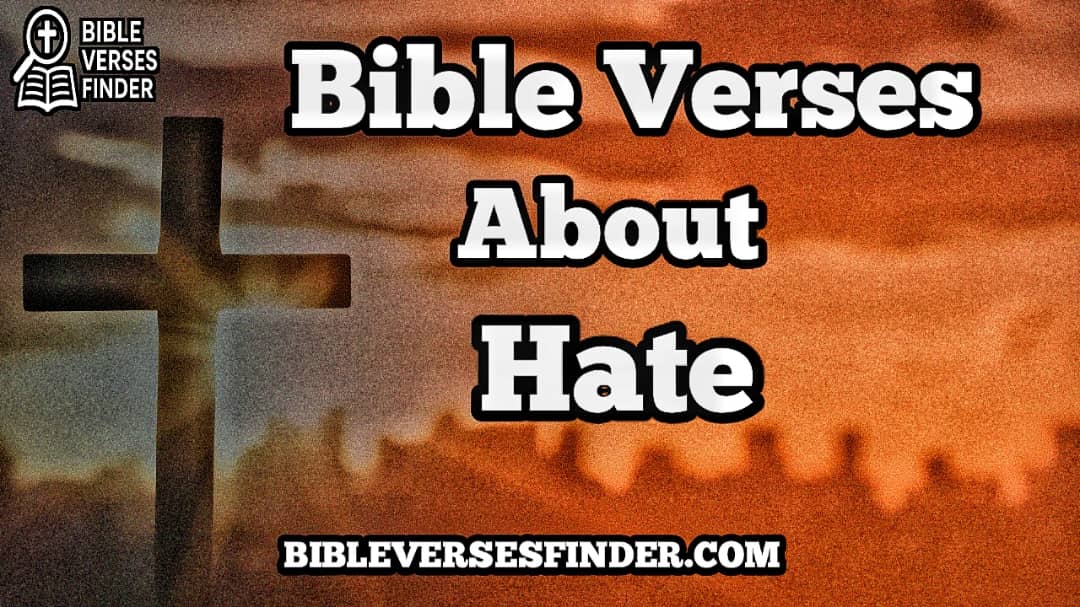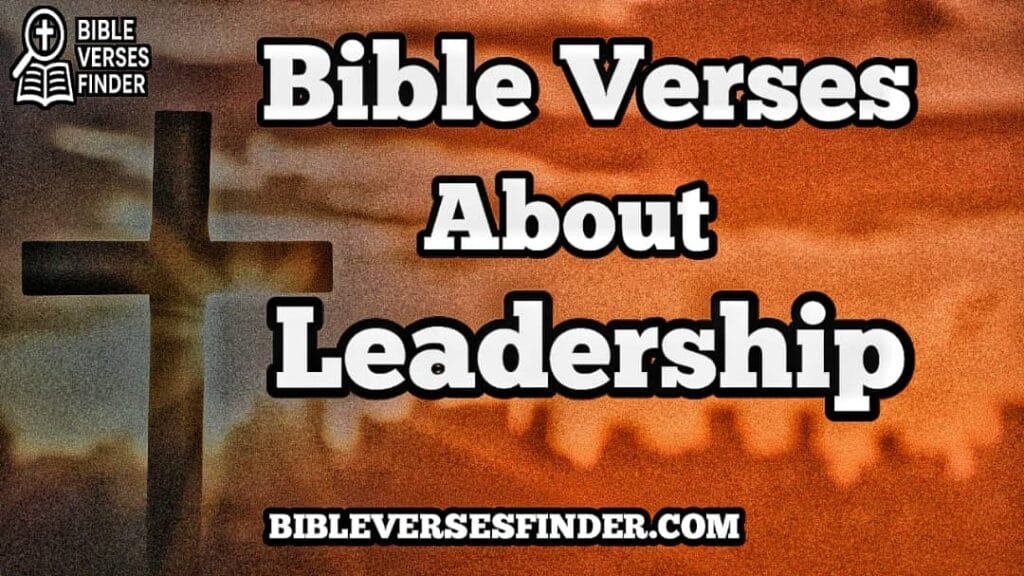It’s a pleasure we make it known to you all that hate is a powerful word, one that can burn bridges, destroy relationships, and poison hearts. We’ve all seen it in the world around us in politics, in families, in communities, and even in the church. But if we’re honest, we’ve also felt it ourselves. Maybe it was toward someone who betrayed us, hurt us deeply, or spoke lies about us. Hate is not always loud and violent; sometimes, it hides in silence, bitterness, or resentment.
Must Read: 18+ Inspiring Communion Bible Verses For All Believers

The Bible speaks directly about hate, not just condemning it, but also helping us understand why it exists and how to overcome it through the transforming love of Christ. God doesn’t just tell us not to hate; He shows us a better way to live, one that brings healing, peace, and freedom.
In our well-written article, we shall be sharing with you all on some amazing bible verses about hate you should know. Take your time and read through this article for more details. You have no worries because we will really update you on hate and what the bible says about it.
Also Read: 21+ Inspiring Bible Verses To Remove Curses
Understanding the Root of Hate — 1 John 3:15
“Anyone who hates a brother or sister is a murderer, and you know that no murderer has eternal life residing in him.” — 1 John 3:15 (NIV)
John doesn’t soften his words here; he equates hate with murder. Why? Because in God’s eyes, hatred begins in the heart, and the heart is where sin takes root. Jesus Himself said in Matthew 5:21-22 that even harboring anger or contempt toward someone makes us guilty before God.
Hatred isn’t just an emotion; it’s a condition of the heart that blinds us to God’s love. It grows when we replay our hurts, justify our bitterness, or refuse to forgive. John reminds us that hate is incompatible with the life of Christ within us.
Is there someone you find it hard to forgive or even wish harm upon? That’s where hate tries to hide. Instead of letting it fester, bring that pain to God. Ask Him to soften your heart and help you see that person through His eyes. Healing begins when we admit our need for grace and extend it to others.
CLICK: 18+ Inspiring Cute Bible Verses For Girls Alone
What God Hates — Proverbs 6:16–19
“There are six things the Lord hates, seven that are detestable to Him:
haughty eyes, a lying tongue, hands that shed innocent blood,
a heart that devises wicked schemes, feet that are quick to rush into evil,
a false witness who pours out lies, and a person who stirs up conflict in the community.” — Proverbs 6:16 19 (NIV)
Interestingly, while God commands us not to hate people, the Bible does tell us that God Himself hates certain things, not people, but behaviors and attitudes that destroy others and dishonor His truth. God’s hate is always righteous and just. He hates pride, deceit, violence, and division because they tear apart the very creation He loves. Understanding what God hates helps us understand His holiness and His deep desire for justice.
We are called to love what God loves and hate what God hates, not out of bitterness, but out of alignment with His heart. That means rejecting injustice, gossip, and cruelty, while choosing truth, humility, and peace. If our “hate” ever leads us to harm people instead of sin, we’ve missed the heart of God.
Love Your Enemies — Matthew 5:43 44
“You have heard that it was said, ‘Love your neighbor and hate your enemy.’
But I tell you, love your enemies and pray for those who persecute you.” — Matthew 5:43 44 (NIV)
This command from Jesus is one of the hardest to follow and one of the most radical in all of Scripture. The world tells us to fight hate with hate, to return insult for insult. But Jesus calls us to rise above the cycle of vengeance by responding to hatred with love and prayer.
Loving your enemy doesn’t mean excusing wrongdoing. It means choosing not to let bitterness define your response. Jesus demonstrated this on the cross when He prayed, “Father, forgive them, for they know not what they do.” (Luke 23:34) That kind of love changes everything, not just others, but us.
Who in your life has been difficult to love? Maybe a family member, co-worker, or even someone who has hurt you deeply. Start small, pray for them. Ask God to bless them and soften both your hearts. Love is not a feeling; it’s a decision, and God gives strength to those who choose it.
Overcoming Evil with Good — Romans 12:17–21
“Do not repay anyone evil for evil. Do not take revenge, my dear friends, but leave room for God’s wrath…
‘If your enemy is hungry, feed him; if he is thirsty, give him something to drink.’
Do not be overcome by evil, but overcome evil with good.” — Romans 12:17 21 (NIV)
Paul’s words are both practical and spiritual. He tells us that the only way to conquer hate is not through retaliation, but through goodness. Every act of kindness in the face of cruelty is a declaration that hate has no power over a child of God.
Hate consumes, but love redeems. When we refuse to repay evil with evil, we show the world that our strength comes from God, not from our anger. Overcoming evil with good doesn’t mean we become passive; it means we become powerful in the right way through mercy and grace.
Next time someone offends or mistreats you, pause before reacting. Ask yourself, “How can I respond in a way that reflects Christ?” Sometimes that means staying silent instead of arguing, offering help instead of revenge, or simply choosing to pray instead of retaliating.
Hatred Stirs Up Conflict, But Love Covers All Wrongs — Proverbs 10:12
“Hatred stirs up conflict, but love covers all wrongs.” — Proverbs 10:12 (NIV)
Hatred thrives on division. It feeds on drama, pride, and self-righteousness. But love, Solomon says, covers, not ignores, all wrongs. Love chooses forgiveness, chooses peace, and chooses to heal instead of hurt.
Every time we choose love over hate, we disarm the enemy’s weapon. Love has the power to break cycles of generational bitterness, restore broken relationships, and mend wounded hearts.
This is the love Christ showed us, a love that covers sin, not with denial, but with grace. When you feel tempted to hold a grudge or speak ill of someone, remember: hate multiplies pain, but love multiplies healing. Take the first step toward reconciliation, even if it’s hard. Send the message, make the call, or simply forgive in your heart.
The Danger of Hidden Hatred — Leviticus 19:17–18
“Do not hate a fellow Israelite in your heart. Rebuke your neighbor frankly so you will not share in their guilt.
Do not seek revenge or bear a grudge against anyone among your people, but love your neighbor as yourself. I am the Lord.” — Leviticus 19:17–18 (NIV)
Even in the Old Testament, God warned against harboring hate in secret. Hidden hatred, unspoken resentment, and silent bitterness can be more destructive than open hostility. God calls us to be honest, to confront conflict with truth and love, rather than letting hatred brew in silence.
Hatred that stays hidden doesn’t disappear; it festers. God desires authentic relationships where love leads, truth speaks, and forgiveness heals. When we choose openness over bitterness, we reflect His character.
If someone has hurt you, don’t let resentment grow in the dark. Seek reconciliation, or at least peace in your heart. Forgiveness doesn’t always mean restoration of a relationship, but it does mean freedom for your soul.
Love as the Ultimate Command — 1 John 4:20 21
“Whoever claims to love God yet hates a brother or sister is a liar. For whoever does not love their brother and sister, whom they have seen, cannot love God, whom they have not seen. And He has given us this command: Anyone who loves God must also love their brother and sister.” — 1 John 4:20–21 (NIV)
Love is not optional in the Christian life; it’s the evidence of our faith. John says plainly that if we claim to love God but harbor hate toward others, our love for God is incomplete.
It’s easy to love God in words, but true love for Him is proven in how we treat people, even difficult ones. God’s love transforms us to love like Him patiently, sacrificially, and without conditions.
Ask God to fill your heart with His love daily. Let it overflow into your actions, words, and responses. When you love people who are hard to love, you show the world what divine love really looks like.
FAQ: Bible Verses About Hate
We shall be looking at some possible questions and answers regarding this post. Take your time and see for yourself for more understanding.
1. Does God hate anything or anyone?
The Bible makes it clear that God does not hate people, but He does hate sin, the behaviors and attitudes that lead to destruction and harm.
“There are six things the Lord hates… a lying tongue, hands that shed innocent blood, a heart that devises wicked schemes…” — Proverbs 6:16 19 (NIV)
God’s hatred is righteous, rooted in His perfect love and justice. He hates what destroys His creation and separates people from Him. But His desire is always redemption, not condemnation.
2. Is it ever right for a Christian to hate something?
Yes, but only in the same way that God does. We are called to hate evil, not people.
“Love must be sincere. Hate what is evil; cling to what is good.” — Romans 12:9 (NIV)
This kind of hate comes from a love for righteousness; it means rejecting injustice, sin, cruelty, and deception. True Christian hatred is never about anger or revenge; it’s about aligning our hearts with God’s holiness.
3. What should I do if I find myself hating someone?
If hatred has taken root in your heart, don’t ignore it — bring it to God in prayer. Ask Him to replace that bitterness with His love.
“Get rid of all bitterness, rage, and anger… Be kind and compassionate to one another, forgiving each other, just as in Christ God forgave you.” — Ephesians 4:31–32 (NIV)
It may not happen overnight, but as you pray for the person who hurt you, God begins to heal your heart. Remember, forgiveness is a process, not a one-time act.
4. How can I love someone who has deeply hurt me?
Loving someone doesn’t always mean trusting or restoring the same relationship. It means releasing them from the grip of your resentment.
“But I tell you, love your enemies and pray for those who persecute you.” — Matthew 5:44 (NIV)
Start by praying for them, not because they deserve it, but because you deserve peace. As you pray, God gives you grace to let go and see that person through His eyes.
5. What’s the difference between anger and hate?
Anger is a natural emotion; hate is a heart posture. The Bible says,
“In your anger do not sin.” — Ephesians 4:26 (NIV)
Anger can be righteous, like when Jesus overturned the tables in the temple. But if anger turns into resentment, bitterness, or the desire for revenge, it becomes hate. The key is to deal with anger quickly, before it poisons the heart.
Summary:
Have it at the back of your mind that hate will always exist in the world, but it doesn’t have to live in us. The message of Scripture is clear: where hate divides, love unites; where hate destroys, love rebuilds. As followers of Christ, we’re not called to mirror the world’s anger, but to reflect God’s mercy.
Every time we choose forgiveness over resentment, prayer over bitterness, and compassion over revenge, we become living testimonies of His transforming grace. I hope you found this post interesting. Do well to share this post as we do all we can to keep you updated.





